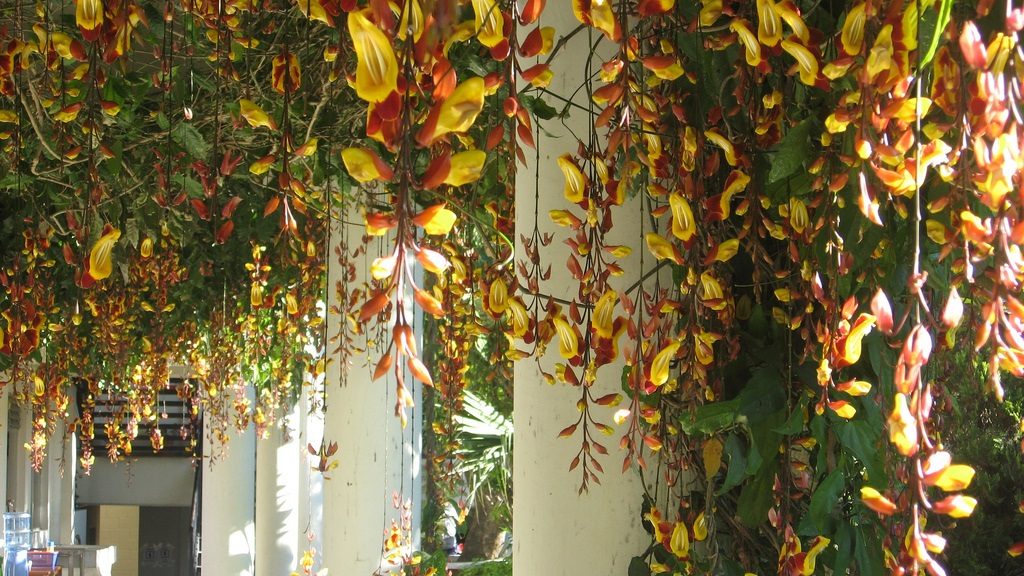Plunging into Cultural Learning
Guatemala is a paradoxical paradise. That’s what Israel Ortiz told us on the first day of orientation in the second-floor CASAS meeting room. I remember sitting in that room, full of excitement. I was ready to fully plunge into this new paradise.
Three weeks later I’m panicking while clinging to a rock with all my strength, almost fully submerged in the rapids of Rio Azul in Huehuetenango. Maybe I plunged in a little too literally. I had been flying my drone through the river’s gorge to capture the splendor when a gust of wind took my drone directly into a tree where it then crash-landed on the opposite bank of the river where I stood helpless with the controller. One of our leaders decided to traverse the raging river to recover my drone. Feeling bad about the predicament I had caused, I clamored along the bank to offer him a hand. The next thing I knew I had slipped into the river. I managed to  grab hold of a rock before being swept away. The current was so strong it took all my strength to keep from being pulled under. I was terrified. Thankfully, Nate and Josh were nearby to pull me out. The drone miraculously recovered with only 24 hours of trusty rice treatment. Paradoxically, our leader and my drone had made it back to the bank safely while my rescue attempt had put me in a perilous situation.
grab hold of a rock before being swept away. The current was so strong it took all my strength to keep from being pulled under. I was terrified. Thankfully, Nate and Josh were nearby to pull me out. The drone miraculously recovered with only 24 hours of trusty rice treatment. Paradoxically, our leader and my drone had made it back to the bank safely while my rescue attempt had put me in a perilous situation.
Along with river expeditions, a part of daily Guatemala life is navigating the public bus system. To catch the transurbano, we flag down the buses with an arm wave. The bus will normally pull over, but if it doesn’t, do not run across three lanes of traffic to catch it. I am not speaking from experience. It’s standard to be safe with your belongings on the transurbano by putting your backpack in front. I learned the importance of this simple safety hack when my phone was pickpocketed right out of my backpack by two women while disembarking from a crowded bus. My heart sank when I looked down at my backpack and  saw the zipper unzipped and the pocket open wide. Moments of tranquility in our routine activities can become quickly intertwined with moments of vulnerability.
saw the zipper unzipped and the pocket open wide. Moments of tranquility in our routine activities can become quickly intertwined with moments of vulnerability.
And while explorations to new regions of Guatemala and navigating the public bus system are great ways to learn about culture, the greatest cultural learnings come from my lovely host family. Every evening they send me to buy tortillas from down the street. When I asked them how often they buy tortillas, they told me three times a day. Since I have arrived, we have yet to go a meal without them. That’s why I found it oddly comforting when we went out to eat at Pollo Campero and my mom snuck out a bag of warm tortillas from her purse when our food arrived. My host family is first-time hosts and very excited to show me about their culture and family. That’s why they did not hesitate at my cousin’s birthday party to push me in front of the crowd for a dance competition hosted by a clown. I didn’t know the dance, or the song being played, so I made up my own moves while the crowd of 50 onlookers laughed. I was only a little embarrassed.
Intercultural is hard. I have been willing myself to be the easy-going, traveler, badass girl of my dreams. And I am her. But I am also lonely and sad and tired. I hope I don’t forget this—what it’s like to be here. The good and the bad. Adjusting to a new culture is difficult, but at the same time, it is so wonderful. It’s like some paradoxical paradise or something, and I’m grateful that I fully plunged in.
-Mariana Acosta

